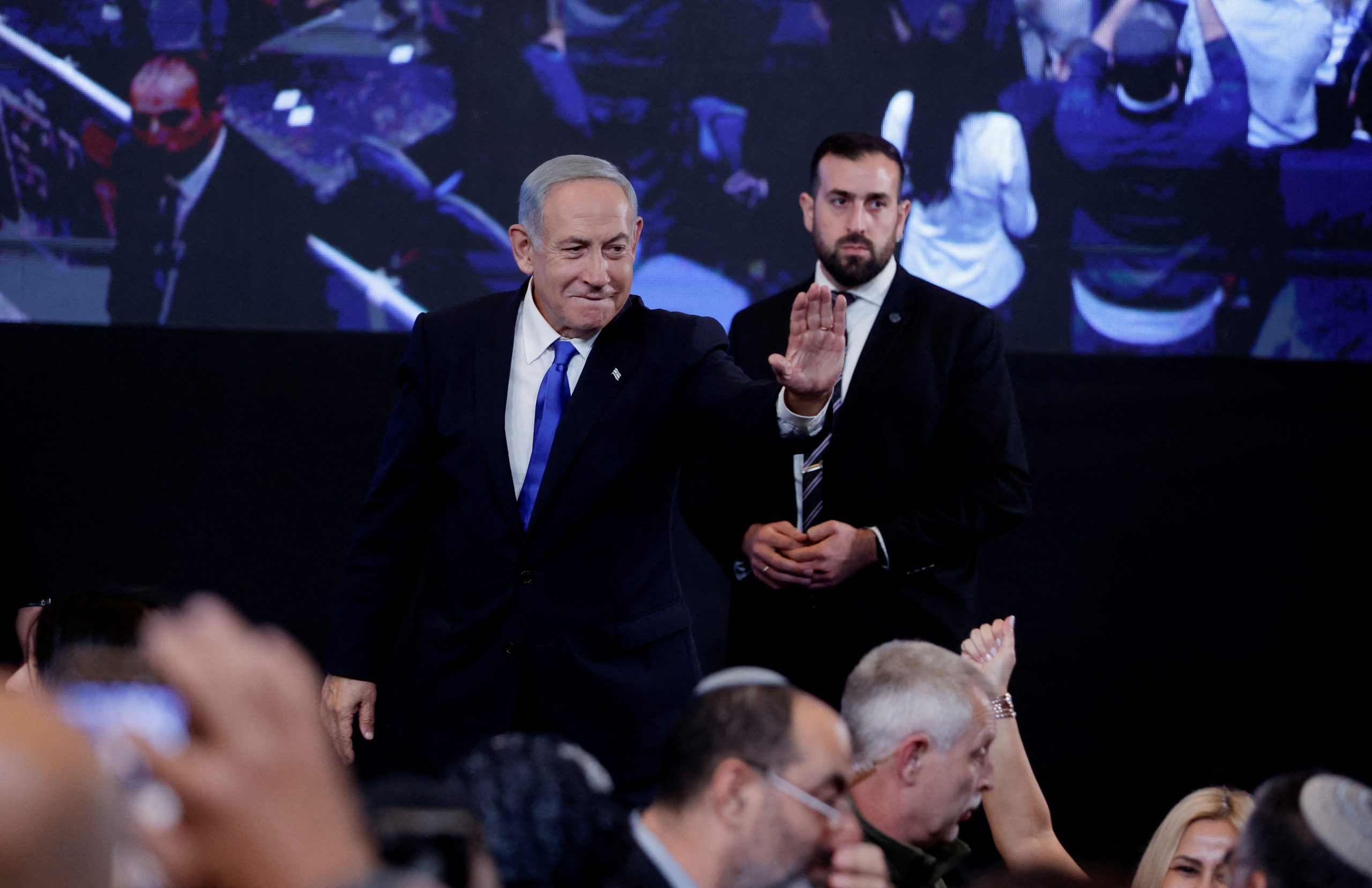
[elfsight_social_share_buttons id=”1″]
Former Prime Minister Benjamin Netanyahu is set to return to power in one of the most right-wing coalitions in Israel‘s history. The win has brought with it fear that tensions could ratchet up across the Middle East.
With roughly 90% of votes counted, Netanyahu’s conservative Likud and its likely religious and far-right allies were on pace to control a majority in parliament after Israel‘s fifth election in less than four years.
“We are on the brink of a very big victory,” a smiling Netanyahu told cheering supporters at his Likud party election headquarters, his voice hoarse from weeks of campaigning.
Netanyahu’s prospective alliance with ultranationalist firebrand Itamar Ben-Gvir has alarmed Palestinians and members of Israel‘s minority Arabs. Asked whether Washington shared such concerns, a White House National Security Council spokesperson declined to comment.
“We look forward to continuing to work with the Israeli government on our shared interests and values,” the spokesperson added.
As prime minister, Netanyahu’s government will likely press forward with settlement activity on occupied land where Palestinians, with international support, seek statehood. But his hard line on Iran means Israel‘s recently struck Gulf Arab alliances should hold firm.
“No doubt the result of such a coalition will increase the hostile attitude towards the Palestinian people and make occupation measures more extreme,” Bassam Salhe, a member of the Executive Committee of the Palestine Liberation Organization, told Reuters.
In fresh violence, a Palestinian motorist wounded an Israeli soldier in a West Bank ramming attack before being shot dead.
Netanyahu vowed to form a “stable, national government” that would act responsibly, avoid “unnecessary adventures” and “expand the circle of peace”.
Political paths
Though the landscape could shift as the remaining ballot count trickles in, Israeli media predicted Netanyahu, who is on trial over corruption charges he denies, would lead a bloc of four parties taking 65 of the Knesset’s 120 seats.
After a campaign dominated by worries over security and the cost of living, support for centrist Prime Minister Yair Lapid’s ruling coalition collapsed. Lapid stopped short of conceding victory pending the final tally. But he also canceled his attendance at next week’s U.N. climate conference.
Less than 18 months out of office, Netanyahu also said he would wait for official results.
The record 12-year consecutive reign of Israel‘s longest-serving prime minister ended in June 2021, when Lapid joined estranged Netanyahu ally Naftali Bennett to stitch together an unlikely coalition of liberals, rightists and Arab parties.
But the fragile alliance unraveled a year into its rule.
Netanyahu’s legal battles have fed the stalemate blocking Israel‘s political system since 2019 and deepened the split between his supporters and opponents. But he said Israelis were thirsty for change.
“The people want a different way. They want security,” Netanyahu said. “They want power, not weakness … they want diplomatic wisdom, but with firmness.”
It remains unclear what position Ben-Gvir and fellow far-right leader Bezalel Smotrich may have in a Netanyahu-led government. But the strength of their Religious Zionism party was one of the outstanding features of the campaign as they brought it surging in from the political margins.
Ben-Gvir, who advocates expelling anyone deemed disloyal to Israel, is a former member of Kach, a group on Israeli and U.S. terrorist watchlists, and was once convicted for racist incitement. He has moderated some of his more extreme positions.
His rise alongside Netanyahu has deepened Palestinian skepticism over prospects for a political solution after a campaign that unfolded during increasing violence in the occupied West Bank, with near-daily raids and clashes.
Copyright 2022 Thomson/Reuters
